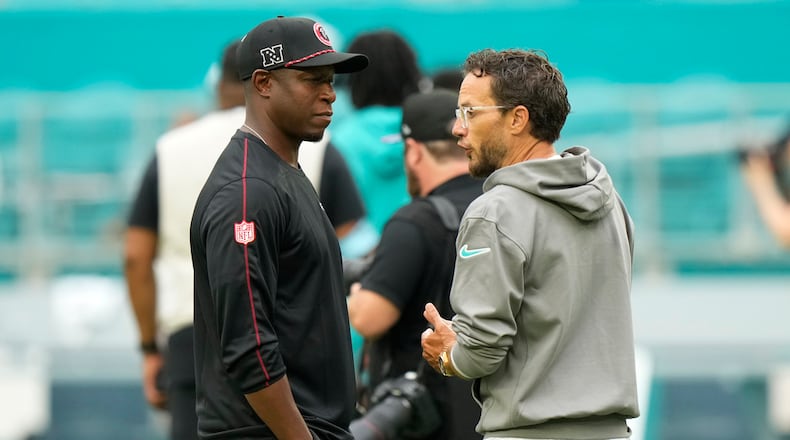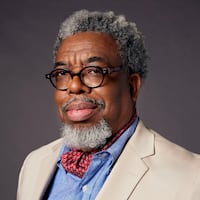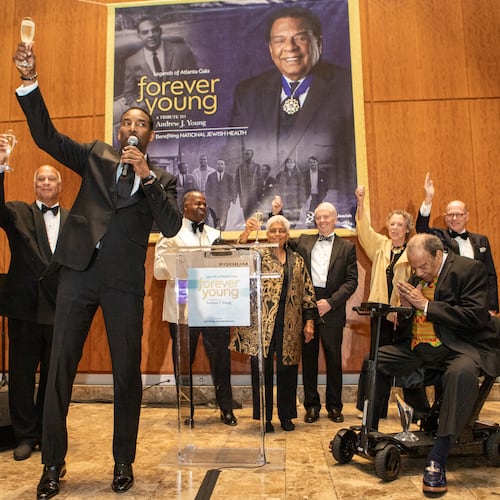Tarana Harris Mayes is a child of the NFL.
She was 5 years old in 1981, when her father Chick Harris got his first job in the NFL as the running backs coach for the Buffalo Bills.
By Chick Harris’ last season in 2013, Mayes was bringing her one-year-old daughter to the games.
“Growing up in the NFL for a young brown girl was a dream. It gave us access and it gave me opportunities,” Mayes said. “I missed my dad when he was working. Now I understand this. When you step forward to give yourself wholeheartedly, you make sacrifices. I am so glad he made that sacrifice because I can understand his legacy.”
On her path to becoming a journalist, Mayes started to ask questions about her father’s work as a coach and how it was influenced by the work of early Black pioneers. She also wanted to know how his work was influencing younger Black coaches.
Credit: University of Washington
Credit: University of Washington
Mayes, a former producer for ABC News, is now trying to tell her father’s story as a longtime NFL coach, in a documentary she is working on about him and the history of Black coaches.
“This is an adventure story about how these men broke into the pro coaching ranks,” Mayes said. “It was inspired by my dad’s story.”
The independent documentary is still in production. In the meantime, Morehouse College is hosting a symposium Wednesday night to explore the legacy of Black men who led the game from the sidelines.
“Better Than They Found It: Black Coaches Who Shaped Modern Football” will feature Mayes, along with Ron Thomas, a former sports reporter for the San Francisco Chronicle and USA Today and the chair of Morehouse’s journalism in sports, culture and social justice department.
They will be joined on the panel by former Atlanta Falcon and Morehouse College head football coach Terance Mathis, former NFL assistant coach Ted Cottrell, and The Atlanta Journal-Constitution Falcons beat reporter D. Orlando Ledbetter.
Credit: Courtesy of Morehouse College
Credit: Courtesy of Morehouse College
Mayes said the discussion will look at the many ways Black NFL coaches contributed to the growth and popularity of the league.
Black coaches have been in the league since 1957, when Lowell Perry was hired as an assistant coach for the Pittsburgh Steelers. This year marks the 35th anniversary of Art Shell’s appointment as the first Black head coach of the modern NFL era when he was handed the reigns of the Los Angeles Raiders.
Wednesday’s discussion will also cover various ways people inside and outside the NFL encouraged the league to increase diversity among its head coaches.
Credit: HYOSUB SHIN / AJC
Credit: HYOSUB SHIN / AJC
The NFL created the Rooney Rule in 2003 to promote the number of minority head coaches (and later general managers and executives) by requiring teams to interview at least one person of color before making a hire.
The league further expanded the rule in 2020, incentivizing teams to hire minority assistant coaches by awarding compensatory draft picks if they lose a minority coach or top football executive to another team. NFL rules stipulate teams receive third-round selections in each of the next two drafts — or each of the next three drafts if two minority employees are hired by another team — providing the candidates were with the team for at least two years.
Before the start of this season, four minority head coaches were hired by NFL teams: Atlanta’s Raheem Morris, New England’s Jerod Mayo, Las Vegas’ Antonio Pierce and Carolina’s Dave Canales. Their hiring brought the number of coaches of color entering the 2024 season to nine, the most in league history.
Credit: Tarana Harris Mayes
Credit: Tarana Harris Mayes
Of those nine, six are Black, including the Steelers’ Mike Tomlin, one of only two Black coaches to ever win a Super Bowl.
It’s also notable that a very young Morris was mentored by Herm Edwards, the former New York Jets coach, who made Morris come to 4:30 a.m. meetings just to test his dedication and commitment as a budding coach.
“We have a first Black head coach in Atlanta, taking the field the same year as the 35th anniversary of Art Shell,” Mayes said, explaining the timeliness of her documentary.
“It is education to let them know you can do anything you put your mind to.”
The Associated Press contributed to this story.
Become a member of UATL for more stories like this in our free newsletter and other membership benefits. Follow UATL on Facebook, on X, TikTok and Instagram.
About the Author
Keep Reading
The Latest
Featured









